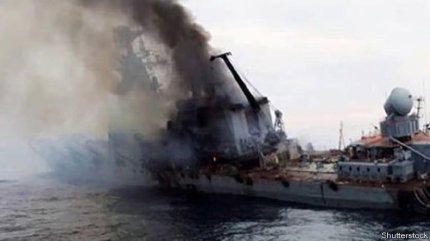Fighters of the Main Directorate of Intelligence of the Ministry of Defense struck military facilities of the criminal army of the Russian Federation in the occupied Debaltseve and Novoluhansky regions of Donetsk region.
Points of attention
- Fighters of the Main Directorate of Intelligence (DIU) successfully struck military facilities of the Russian army in Debaltseve and Novoluhanskyi regions, impacting logistics centers and obstacle-placing stations.
- The joint actions of scouts and air reconnaissance units led to the identification and precise targeting of objects in the occupied zones, showcasing the effectiveness of Ukrainian weapons.
- The Department of Strategic Communications of the Ukrainian Armed Forces highlighted the record-breaking range of military strikes in Russia, demonstrating the strategic success of Ukrainian intelligence officers and armed forces.
- Continuous deep strikes using Ukrainian weapons on Russian territories over the past six months reflect the ability to breach boundaries without violating any 'red lines', as evidenced by the damage map showing hits over 800 kilometers away.
- GUR's successful strikes on Russian military facilities in Debaltseve and Novoluhanskyi mark a milestone in countering the aggression of the Russian army and maintaining Ukraine's defense strategies.
What is known about the consequences of the DIU strikes on the facilities of the Russian army in Debaltseve and Novoluhansk
It is noted that the blows were inflicted on July 6.
On July 6, scouts of the Department of Active Actions of the GUR of the Ministry of Defense of Ukraine, in cooperation with the aerial reconnaissance unit of the 45th separate artillery brigade, discovered and inflicted fire damage on two military facilities of the aggressor state of Russia in the temporarily occupied territory of the Donetsk region, the DIU emphasizes.
in Debaltsevo, scouts hit the logistics center. The invaders stored tank equipment and ammunition there;
in Novoluhansk DIU burned down the expensive Russian R-330Zh "Zhitel" automated obstacle-setting station.
What is known about the consequences of other strikes on the objects of the criminal army of the Russian Federation
The Department of Strategic Communications of the Armed Forces of Ukraine has published a map of record (TOP-10 by range) hits to military facilities in Russia over the past six months.
With the use of Ukrainian weapons, dozens of deep strikes are systematically carried out on the territory of the Russian Federation. Thus, the use of weapons of Western manufacturers will not violate any additional imaginary "red lines".
The damage map shows that the distance to the targets in the Russian Federation is more than 800 kilometers, the farthest point of "arrival" is in Orsk, that is, we are talking about 1,800 kilometers.









